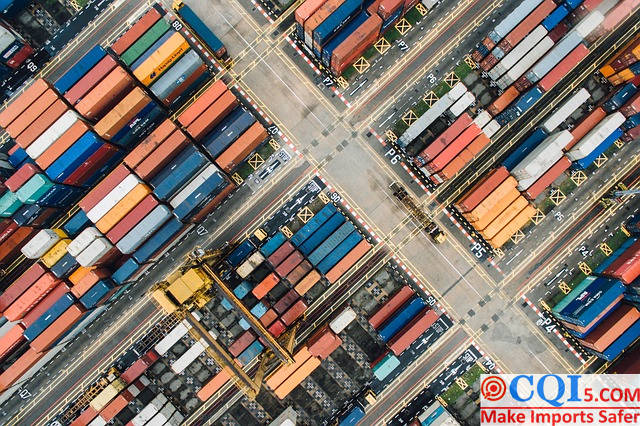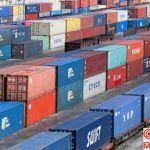China makes the industry chain stable, Recover From COVID-19
COVID-19 influences the further rise of superimposed trade protectionism, which leads to severe challenges in the global supply chain. Supply chain crisis is essentially a concentrated outbreak of global trade and industrial problems in recent years under the special situation of epidemic situation. Experts from many countries believe that ensuring the stability of industrial chain and supply chain is an important foundation for smooth economic operation, which requires the full cooperation of the international community. China’s practices and initiatives in stabilizing the supply chain are of great significance to the steady recovery of the world economy. So China makes the industry chain stable means a lot.
China Makes The Industry Chain Stable,Reduce the Trade Risk
The formation of industrial chain is the result of long-term development of international trade and investment. The clearer and more detailed the division of labor of each chain node is, the more professional and centralized the production and supply of a single node will be. A “breakpoint” may lead to inefficiency or even paralysis of the whole chain. Under the background of globalization, international division of labor and trade cooperation not only affect the global economy, but also are closely related to the normal operation of social life.
Macroscopically, supply chain problems are affecting the global economic recovery. In October, the International Monetary Fund (IMF) lowered its forecast of world economic growth this year to 5.9%. Georgieva, managing director of IMF,said that the changes brought about by the variation of Covid-19 had an impact on the supply chain and even the economy, which hindered the recovery process.
Midscopically, the manufacturing industry encounters supply chain bottlenecks. Many factories in Southeast Asia shut down, putting pressure on industries in Japan, South Korea and other countries. These electronic and semiconductor industries deeply embedded in the global industrial chain are in trouble, but they also affect related industries in other regions. Fitch Ratings, an international credit rating agency, said that the shortage of semiconductor chips led to a sharp decline in automobile production in the United States and Germany.
Microscopically, the supply chain problem also led to the shortage of retail goods supply and soaring prices in some countries, which significantly affected people’s daily life. In the United States, some port containers are piled up, cargo ships are stranded, supermarket shelves are empty in some places, daily necessities and holiday items such as Christmas trees are in short supply. Necessities such as bottled water and toilet paper are restricted.
Multiple factors lead to the risk of “broken chain”
On the surface, the epidemic caused the factories in some areas to be unable to start work, the global production capacity was insufficient, the transportation capacity was frustrated, and the downstream inventory of the supply chain was at a low level, resulting in supply shortage. In essence, the risk of “broken chain” is the consequence of international economic and trade cooperation being blocked and industrial chain being disturbed by the rising of trade protectionism. Besides, it is also restricted by the labor shortage in major industrialized countries, and the epidemic situation makes the problem more prominent.
Jin Xu, president of China Institute of International Trade, said that the supply chain exists in both production and consumption. The shortage of raw materials at the production end affects industrial output, while the shortage of products at the consumption end affects social life. As a major producer and consumer country, the problem of “broken chain” in the United States is particularly obvious and affects spillover.
Deng Ziliang, a researcher at the National Academy of Development and Strategy,RUC, believes that since the global financial crisis in 2008, developed countries represented by the United States have re-examined the “de-industrialization” policy, devoted themselves to the return of manufacturing industries and adopted protectionist trade measures to create a favorable environment for boosting manufacturing exports, but the epidemic has impacted them and further affected global industrial cooperation.
Forbes magazine pointed out that the current supply chain problem started with the trade war initiated by Trump. At the end of last year, cracks in the US supply chain have emerged. “Supply chain tension” is a focus in the latest quarterly earnings report of American companies.
It is the “mainstay” of China’s stable supply chain.
China overcame the epidemic and promoted the development of foreign trade. It was the only major economy in the world that achieved positive growth in goods trade last year, and made important contributions to ensuring the stability of the global industrial chain supply chain and promoting the recovery of the world economy.
China Makes The Industry Chain Stable,China’s Economy Is Stable And Improving
In the first three quarters of this year, China’s exports increased by more than 20% compared with the same period in 2019. The epidemic situation made the global dependence on Chinese supply not decrease but increase. Mao Xuxin, chief economist of National Institute of Economic and Social Research, said: “The bright export growth is due to the improvement of the self-control ability of the industrial chain and supply chain, China’s industrial chain supply chain has shown strong resilience.”
In order to further promote the stability and smoothness of the industrial chain and supply chain, many departments of the Chinese government have recently put forward a number of measures, including special actions to supplement and strengthen the chain of key industrial chains, cultivating “chain owners” enterprises in the industrial chain and improving the modernization level of the industrial chain and supply chain.
At the same time, China’s international initiative has also received positive response. At the G20 summit in Rome, which closed recently, China proposed to hold an international forum on resilience and stability of industrial chain and supply chain, inviting all parties to participate. Liu Ziyang, a professor at Kyonggi University, believes that this initiative is very timely and of great significance. China makes the industry chain stable, takes into account its own and global development, firmly supports multilateralism and free trade, and allows more economies to integrate into the global industrial chain, which will play a positive role in solving current problems.
Jeffrey Sachs, a well-known American economist and director of SDSN, said that an open international trade system is beneficial to the whole world, and China is the center of international shipping and the supply of many commodities, which can play a constructive role in stabilizing the global supply chain.
Abdul Aziz shabani, a China Watcher in Saudi Arabia, said that China has a complete industrial chain and plays an irreplaceable role in maintaining the stability of the global industrial chain and supply chain. China is making great efforts to promote high-tech industries such as digital economy, which will promote the Chinese economy to be more dynamic and sustainable and will also bring more new development impetus to the world economy.
CQI5 is committed to providing importers worldwide with product quality inspection services that far exceed those of our peers. If you are planning to import or have imported from China or Southeast Asian countries, please contact us cs’@’cqipro.com to learn more about how we can make your imports safer.
Disclaimer:
CQI5 article information from the Internet and contributions, the copyright of which belongs to the original author, and only represents the views of the original author. This website is only responsible for sorting out, typesetting and editing the articles, reproduced for the purpose of spreading more information, does not imply that it endorses its views or proves the truthfulness, completeness and accuracy of its content, and therefore does not assume any legal responsibility.
The information contained in this article is for reference only and is not intended as direct advice for decision-making.
If we inadvertently violate your copyright, please inform us, after verification, we will immediately correct or delete the content according to the requirements of the copyright holder, thank you! Contact, email: copyright@cqipro.com
This website has the final right to interpret this statement.
Welcome to reprint, please be sure to keep information complete.





